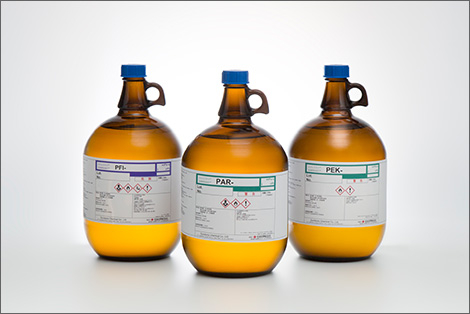Chemicals
Sumitomo Chemical to build $90 million photoresist plant in S.Korea
Japanese firms are expanding investment in Korea as Japan's export ban on key semiconductor materials continue
By Sep 01, 2021 (Gmt+09:00)
2
Min read
Most Read
LG Chem to sell water filter business to Glenwood PE for $692 million


KT&G eyes overseas M&A after rejecting activist fund's offer


Mirae Asset to be named Korea Post’s core real estate fund operator


StockX in merger talks with Naver’s online reseller Kream


Meritz backs half of ex-manager’s $210 mn hedge fund



Japan’s major chemical company Sumitomo Chemical Co. will invest more than 10 billion yen ($91 million) in South Korea to manufacture photoresists, a light-sensitive material used in making semiconductor chips. The case marks the biggest investment decision by a Japanese company in the sector after the island country has put export regulations on semiconductor materials in 2019.
Sumitomo Chemical said on Sept. 1 that will build a new factory in South Korea to stably supply photoresists to the country’s chip makers including Samsung Electronics Co. and SK Hynix Inc. The Japanese firm added that the factory construction will kick off within this month, with full operation expected in 2024.
The new plant will produce argon fluoride (ArF) photoresists, used in photolithography to form a patterned coating on the surface of semiconductor wafers. Sumitomo Chemical, the world’s fourth-largest photoresist maker, has been manufacturing ArF photoresists only from its factory in Osaka.
Sumitomo Chemical is also expanding its current Osaka facilities, a project that is expected to complete by 2024 as well. With the expansion and the new plant in South Korea, Sumitomo Chemical’s photoresist production capacity in 2024 will be increased by 2.5 times that of the 2019 level.
Japan’s business newspaper Nikkei reported that Sumitomo’s decision to make photoresists in overseas grounds for the first time is largely due to the requests made by the South Korean firms, which rely 90% of photoresist supply on imports. Analysts expect the global photoresist market is expected to 10% annually due to stronger demands from 5G smartphones and data centers.
The ArF photoresists are not under the export ban by the Japanese government, unlike hydrogen fluorides, EUV photoresists and polyimides, meaning that Sumitomo could continue to make and export the materials from its Osaka plant to Korea. Industry experts highlight that Sumitomo’s decision was largely driven by the fact that South Korean firms have made plans to produce the ArF photoresists and other import materials on their own, in a move to reduce dependence on imports.
For instance, SK Materials Co. has successfully started mass-producing hydrogen fluorides in June with 99.999% purity. The company also invested 40 billion won ($35 million) in 2020 with plans to produce 50,000 gallons of ArF photoresists annually from 2022.
Sumitomo is not the only Japanese company in the semiconductor materials sector to increase investment in South Korea recently.
Tokyo Ohka Kogyo Co. (TOK), the second-largest photoresist maker in the world, has recently put billions of yen to double the manufacturing capacity of its Incheon plant compared to the 2018 level. Likewise, the hydrogen fluoride maker Daikin Industries Ltd. will invest 4 billion yen ($36 million) to build a new plant in South Chungcheong Province.
Meanwhile, some other Japanese companies that used to supply hydrogen fluorides to Samsung, such as Chemifa Corp. and Morita Chemical, saw significant cuts in revenues due to Japan’s export ban.
Write to Yeong-hyo Jeong at hugh@hankyung.com
Daniel Cho edited this article.
More to Read
-
 Corporate restructuringSK Group’s holding firm to absorb SK Materials in corporate restructuring
Corporate restructuringSK Group’s holding firm to absorb SK Materials in corporate restructuringAug 20, 2021 (Gmt+09:00)
3 Min read -
 Battery materialsSK Materials’ shares fly high on rosy business outlook
Battery materialsSK Materials’ shares fly high on rosy business outlookJul 21, 2021 (Gmt+09:00)
3 Min read -
 SemiconductorsSK Hynix joins Micron in 4th-gen 10nm DRAM production
SemiconductorsSK Hynix joins Micron in 4th-gen 10nm DRAM productionJul 12, 2021 (Gmt+09:00)
2 Min read
Comment 0
LOG IN


